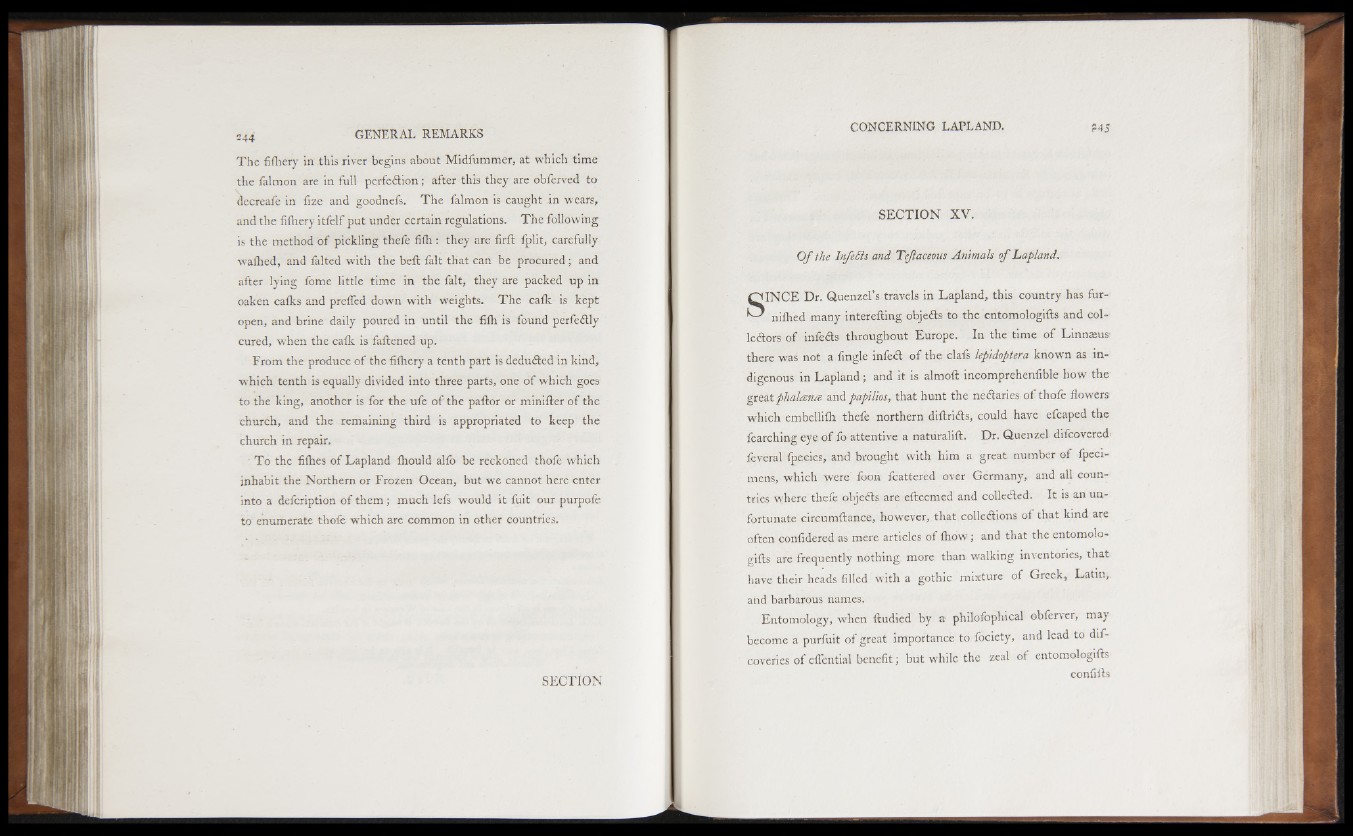
The fiihery in this river begins about Midfummer, at which time
the falmon are in full pe.rfe&ion; after this they are obferved to
decreafe in fize and goodnefs. The falmon is caught in wears,
and the fiihery itfelf put under certain regulations. The following
is the method of pickling thefe fiih : they are firil fplit, carefully
waihed, and falted with the beft fait that can be procured ; and
after lying fome little time in the fait, they are packed up in
oaken caiks and preifed down with weights. The cafk is kept
open, and brine daily poured in until the fiih is found perfectly
cured, when the cafk is fattened up.
From the produce of the fiihery a tenth part is deducted in kind,
which tenth is equally divided into three parts, one of which goes
to the king, another is for the uie o f the pallor or miniiler of the
church, and the remaining third is appropriated to keep the
church in repair.
To the fiihes of Lapland ihould alio be reckoned thofe which
inhabit the Northern or Frozen Ocean, but we cannot here enter
into a defcription of th em ; much lefs would it fuit our purpofe
to enumerate thofe which are common in other countries.
SECTION XV.
O f the Infers and Tejlaceous Animals o f Lapland.
SINCE Dr. Quenzel’s travels in Lapland, this country has fur-
niihed many intereiling objeCts to the entomologiils and collectors
of infeCts throughout Europe. In the time of Linnasus
there was not a fingle infeCl of the clafs lepidoptera known as indigenous
in Lapland -r and it. is almoil incomprehenfible how the
great phalana and papilios, that hunt the neCtaries of thofe flowers
which embelliih thefe northern diilriCts, could have efcaped the
fearching eye of fo attentive a naturaliil. Dr. Quenzel difcovered>
ieveral fpecies, and brought with him a great number of fpeci-
mens, which were foon fcattered over Germany, and all countries
where thefe objeCts are eileemed and collected. It is an unfortunate
circumftance, however, that collections of that kind are
often confidered as mere articles of ih ow ; and that the entomologiils
are frequently nothing, more than walking inventories, th a t
have their heads filled with a gothic mixture of Greek, Latin,
and barbarous names.
Entomology, when ftudied by a- philofophical obferver, may
become a purfuit of great importance to Society, and lead to discoveries
of eflential benefit; but while the zeal of entomologiils
confiils